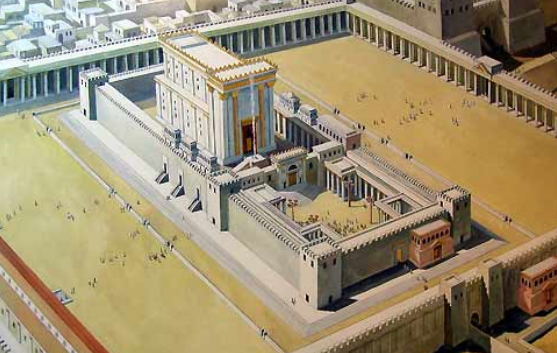Solomon's Free Trade and Peace
The Old Testament books of 1 and 2 Samuel, 1 and 2 Kings and 1 and 2 Chronicles form a large part of the history of the Jewish nation. Like much of the Old Testament they are full of violence: the words "kill", "battle", "war" and "fight" and their variants occur 470 times. There was even a season for war, rather as we would have a cricket season: "In the spring, the time when kings go off to war..." (2 Samuel 11.1)
In the midst of this narrative of strife and suffering we find some rather different chapters. 1 Kings 5 to 10 and the parallel chapters in 2 Chronicles, 2 to 7, record Solomon building the temple in Jerusalem. This was the high watermark of the nation's prosperity. Solomon was able to capitalize on the peace which his father, David had secured after wars, both civil and external.
A note which runs through those chapters, which culminate in the dedication of the temple, was international trade. 1 Kings 5 opens with the friendly king Hiram of Tyre sending envoys to Solomon. They arrange to trade, with Hiram sending Solomon "cedars of Lebanon" and quarried stone. Men from the two countries would work together in both countries, felling trees and quarrying stone. Solomon undertook to pay the workers, and sent Hiram wheat and olive oil. The combined labour force was joined by workers from somewhere called Byblos.
Recruitment for these tasks relied on conscription, indeed it was "forced labour." We might frown on this today, but the writer tells us that the workers "spent one month in Lebanon and two months at home." It was enlightened by the standards of the day, and these men were not being sent to die in battle.
The chapters record the huge national celebrations at the consecration of the temple.
The relationship wasn't without its difficulties (1 Kings 9: 12, 13), but it seems to have endured. Later in that chapter, we read, "Hiram sent his men - sailors who knew the sea - to serve in the fleet with Solomon's men. They sailed to Ophir and brought back 420 talents of gold, which they delivered to King Solomon."
Solomon traded with the Queen of Sheba. He imported and exported horses and chariots to Egypt, the Hittites and the Arameans, erstwhile enemies (1 Kings 10: 28, 29).These chapters have recorded the free movement of goods, people and capital. The events coincide with national prosperity and peace. To have been alive at the time would have had the feeling of a golden age, with hope for the future and of the generations to come.
Sadly it was not fulfilled. Solomon's pride, immorality and poor decisions would lead the nation downhill. Warfare, both civil and external, would return.
The years of our membership of the European Union, with its single market and the free movement of goods, people and capital, have seen a growth in prosperity for the participants. These are nations who, within living memory, had been at war with one another. The relationships between nations have had their difficulties, and the fruits of prosperity have not been evenly shared within economies, but European trade has grown and become a natural part of our lives. It has marked these 70 years that Western Europe has enjoyed peace after chapters of history marked by warfare.
Sadly, the U.K. is about to walk away from this. There is a certain false pride that has led our turning our back on the free trading relationship we currently enjoy. We are walking away from a hard won unity and venturing out into a future which is largely unknown. I suspect the only way is downhill.
